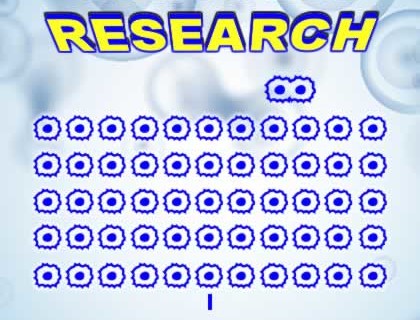
Knowledge Sharing is Key to Future Breakthroughs in Cancer Research
PhD and post-doc cancer researchers are being recognized as cell culture heroes in a new program that provides a platform to promote education and share knowledge among the researchers who are driving breakthroughs in the fight against cancer.
Cancer is defined as a disease caused by an uncontrolled division of abnormal cells that can affect any part of the body, with well over 200 different types of cancer identified to date. It is one of the world’s biggest killers, with approximately 14 million new cases and 8.2 million deaths a year. In 2017, cancer was responsible for the deaths of about 600,000 adults and 2,000 children in the United States. The field of cancer research has been a prevalent part of the scientific and pharmaceutical landscape for well over a century spanning a variety of interdisciplinary areas ranging from molecular biology, chemistry, epidemiology and computer programming with the ultimate goal to find a cure for cancer. The combined scientific efforts have already resulted in new ways to prevent, detect, and treat cancer and a 25% decline in death rate from cancer over the past two decades. Despite this, there is more work to be done. By 2030, the World Health Organization (WHO) estimates the number of cancer cases will increase to 24.6 million and the number of cancer deaths to 13 million.
The first insights into human cancer causation occurred in 1775 when Percivall Pott identified chimney soot as an environmental trigger for cancer. However, it wasn’t until the signing of the National Cancer Act of 1971 that real strides in cancer research were made to better our understanding of its biology in hopes of developing more effective treatments. Additionally, the 21st Century Cures Act signed in 2016 authorizing $6.3 billion in funding, particularly for the National Institutes of Health (NIH), the agency responsible for biomedical and public health research, with $1.8 billion dedicated to cancer research in the “Beau Biden Cancer Moonshot” initiative. With the support of governing bodies combined with major scientific advances in genomics, computing and mathematics, significant breakthroughs in cancer research have been made in the past few decades. This is evidenced by the increase in the number of cancer-related papers, with roughly 6% of all entries in the MEDLINE database in the 1950s increasing to 16% in 2016. In particular, exciting breakthroughs such as CRISPR/Cas9 gene editing technology, CAR-T cell immunotherapy and other novel translational therapies have revolutionized approaches in the fight against cancer. Other emerging tools such as three-dimensional organoids or ‘organ-on-a-chip’ platforms are providing better, more accurate tools upon which researchers can model cancer progression and test novel therapies. Taken together, scientists are embracing new technologies to advance our understanding of the disease and enabling the pursuit of better treatment options.
Because of the complex nature of the disease, cancer research necessitates combining information and approaches across many scientific disciplines either in academia or industry, ranging from basic cellular and molecular biology, epidemiology, clinical trials and studies, and behavioral-social sciences. In this age of technology, enabling dialogue between researchers between labs worldwide is more easily facilitated allowing researchers to come together to collaborate and share information for the common goal of studying the causation and prevention of cancer.
In keeping with this, Gibco’s Cell Culture Heroes program strives to highlight PhD and post-doc cancer researchers across worldwide with the aim of telling the story of their research through the use of a series of webinars. This program aims to promote education and share knowledge amongst researchers who are driving tomorrow’s breakthroughs in the fight against cancer.
For example, Kai Kretzschmar, PhD Postdoctoral researcher from the Hubrecht Institute (The Netherlands) is one such Cell Culture Hero. His work focuses on utilizing patient-derived tumor organoid cultures for colorectal cancer modelling and their applications for experimental, diagnostic and therapeutic use. These 3D organoids can not only be used as experimental tool for basic research but extend to function as a diagnostic and therapeutic tool for (personalized) medicine. Yet another Cell Culture Hero featured is Alexander T. Baker, a PhD candidate in the Parker Lab at Cardiff University (Wales, UK) whose research is vastly different than the work on organoids. Instead, his focus is on a targeted treatment for cancer. This work is in the nascent field of oncolytic virotherapy, utilizing re-engineered adenoviruses as a therapeutic to specifically target and destroy cancer cells.
You can see both of these Cell Culture Heroes’ webinars as well as several others on the Gibco Cell Culture Heroes webinar page.
Gibco hopes to bring to light the diversity of research projects in the field of cancer research as new technologies are developed and embraced by the scientific community. To learn more or to submit an application to be the next Cell Culture Hero, please visit Gibco Cell Culture Heroes.